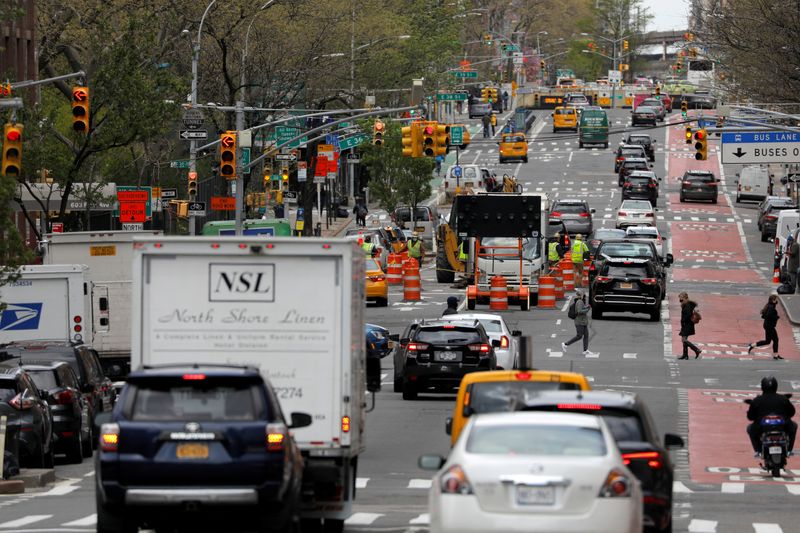By David Shepardson
NEW YORK (Reuters) - The Metropolitan Transportation Authority (MTA) board voted on Wednesday to approve the toll rates for Manhattan's congestion pricing program, the first of its kind in the United States.
Under the plan, New York City will charge a daily toll of $15 during the day for passenger vehicles driving in Manhattan south of 60th Street starting in mid-June. It will charge up to $36 for larger trucks and buses. The plan still faces a number of legal challenges including from the state of New Jersey.
"This program will reduce traffic in Manhattan's central business district, reduce pollution, and provide critical funding for transit improvements," the MTA said.
New York says more than 900,000 vehicles enter the Manhattan Central Business District daily, reducing travel speeds to
around 7 miles an hour (11 kph) on average.
New York City, which has the most congested traffic of any U.S. city, is set to follow London, which implemented a similar charge in 2003.
New York said the charge would cut traffic by 17% and improve air quality and increase transit use by 1% to 2%, as well as generate $1 billion to $1.5 billion a year and support $15 billion in debt financing for mass transit improvement.
Passenger vehicle drivers who enter at night will pay $3.75 and motorcycle riders will pay up to $7.50 to enter the area, the MTA said. Drivers will only be charged once per day.

Taxi users will pay a $1.25 surcharge, while Uber (NYSE:UBER) and Lyft (NASDAQ:LYFT) users will pay $2.50 per trip in the congestion zone. Those fees are in addition to New York's $2.50 congestion charge for taxis and $2.75 for for-hire vehicles in place since 2019.
Vehicle owners whose adjusted gross annual income is no more than $50,000 or received low-income benefit may qualify for 50% discounts for some trips or for New York state tax credits under the plan.